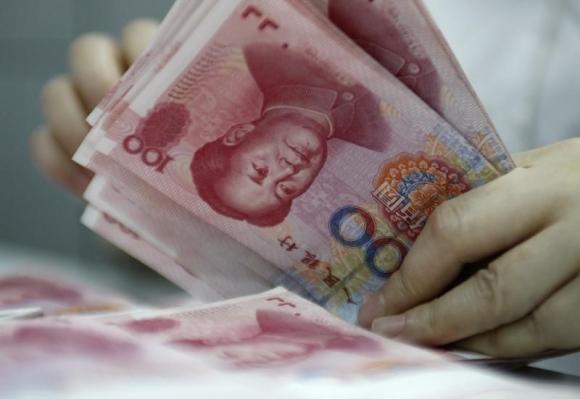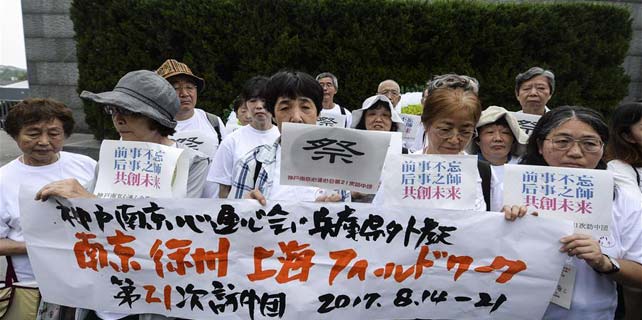Homework remains the key to overseas M&A success
 |
|
An employee counts yuan banknotes at a bank in Huaibei, Anhui province June 22, 2010.[Photo/Agencies] |
As China's regulatory environment on overseas transactions gets tighter, domestic companies buying up assets overseas should adopt a more prudent and rational outlook, experts say.
"Companies hungry for overseas deals should take in 'vitamins' rather than 'antibiotics'. This means doing their homework at the very start to nip any potential problems in the bud, instead of looking for a remedy when they encounter obstacles," said Wu Jianyong, a Beijing-based partner at accounting firm Grant Thornton.
Failed deals, Wu pointed out, usually result from a lack of due diligence and overall planning. There is no shortage of domestic investors, mainly private firms, putting in a bid without conducting any due diligence or the slightest idea of how to make the target company synergize with the bidder itself after the transaction.
"Basically, a failed transaction is doomed from the very beginning," Wu told China Daily. "Closing the deal is not the end of the story. How to benefit from a synergy effect between the target company and the bidder should be the ultimate goal, and is an issue that must be taken into consideration right at the outset."
Over the past 12 months, headline-making mega deals in sectors including entertainment, tourism and real estate, mostly outside the purchaser's core business, have flagged concerns over the irrationality and unreasonableness of a buying frenzy described as "a rose with thorns" by Pan Gongsheng, deputy director of the State Administration of Foreign Exchange.
Though the intensified regulatory scrutiny is a hard fact with which every market player should learn to cope, Wu believes the so-called regulatory hurdle is something 'periodical' and should not change the long-term trend of Chinese enterprises seeking deals across the globe.
"Cross-border acquisitions, which may go along the Belt and Road countries and regions, or be related to the buyer's core line of business, or has the potential to create synergy effect, are essentially encouraged and welcomed by Chinese policymakers," Wu noted.
To be sure, the confidence of domestic investors about getting deals done outside the world's second-largest economy has been dampened a bit, evidenced as the country's M&A dealmaking halved in the first half of the year, according to data from Ernst & Young.
The accounting firm forecast a 45 percent drop of the nation's M&A volumes on year to $100 billion for the whole of 2017.
"As the foreign assets buying spree shows signs of cooling down, and getting back on a rational and reasonable track, we can expect to see more domestic companies, with foresight and adequate due diligence, return to the M&A battlefield and have their eyes trained on the Belt and Road route in their quest for an investment growth engine," Yang Feng, founding partner and chief executive officer of Shenzhen-based Blue Ocean Capital Group, said at the conference.
Last year, the world's second-largest economy overtook the US and Japan as the predominant bidder in the Belt and Road countries and regions. Such a momentum should go nonstop, but in a new manner, Yang noted.
Years ago, the country's overseas dealmaking started as a hunt for raw materials and energy to keep its so-called old economy humming along.
Today, the global M&A spree shifts its focus to sectors such as financial technology, manufacturing and telecommunication, with domestic purchasers acquiring brands and expertise needed to bolster the nation's vision of refocusing from an export-driven, investment-intensive economy to a consumption-led, innovation-fueled "new economy", Yang reckoned.
In less-developed and infrastructure-hungry markets relating to the Belt and Road Initiative, the focus of Chinese buyers may be different, pointing to a story of exploring the market's insatiable appetite for infrastructure investments that fits in well with the original and primary commitment of the initiative, Yang added.
No matter what the focus is, the leading edge of Chinese buyers over its foreign counterparts in the global M&A battlefield lies in its massive domestic market to create a synergy effect, Wu said. But the disadvantage comes from a dearth of experience and the lengthy process of doing due diligence and obtaining the final sign-off from domestic regulators in getting deals done.






















